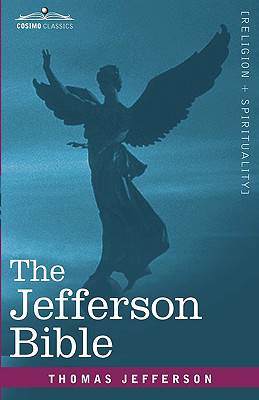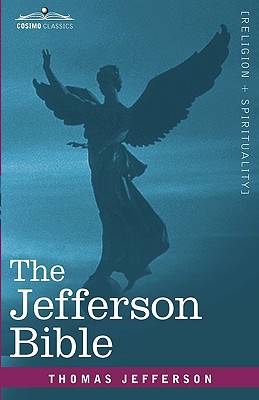
- Afhalen na 1 uur in een winkel met voorraad
- Gratis thuislevering in België vanaf € 30
- Ruim aanbod met 7 miljoen producten
- Afhalen na 1 uur in een winkel met voorraad
- Gratis thuislevering in België vanaf € 30
- Ruim aanbod met 7 miljoen producten
Zoeken
€ 35,45
+ 70 punten
Uitvoering
Omschrijving
Though its author called it The Life and Morals of Jesus of Nazareth, the prominence of said author led to the inevitable informal title by which it is known today: The Jefferson Bible. American legend THOMAS JEFFERSON (1743-1826)-author, statesman, and third president of the United States-was a deist, a believer in, at best, a watchmaker god, one who did not take a personal interest in the goings-on of humanity. But Jefferson took great comfort from the teachings of Jesus, and so, by editing and rearranging the traditional books of the Bible, Jefferson here retells the story of Jesus in chronological form, removing all supernatural elements but retaining the beauty and the wisdom of the philosophy of Jesus. Jefferson, who had no desire to preach, refused to let his Bible beyond a circle of close friends, and it remained unpublished until 1895. Today, it is one of the most astonishing-if oblique-works of cultural and theological criticism in the English language.
Specificaties
Betrokkenen
- Auteur(s):
- Uitgeverij:
Inhoud
- Aantal bladzijden:
- 138
- Taal:
- Engels
Eigenschappen
- Productcode (EAN):
- 9781616401863
- Verschijningsdatum:
- 1/04/2010
- Uitvoering:
- Hardcover
- Formaat:
- Genaaid
- Afmetingen:
- 140 mm x 216 mm
- Gewicht:
- 312 g

Alleen bij Standaard Boekhandel
+ 70 punten op je klantenkaart van Standaard Boekhandel
Beoordelingen
We publiceren alleen reviews die voldoen aan de voorwaarden voor reviews. Bekijk onze voorwaarden voor reviews.








